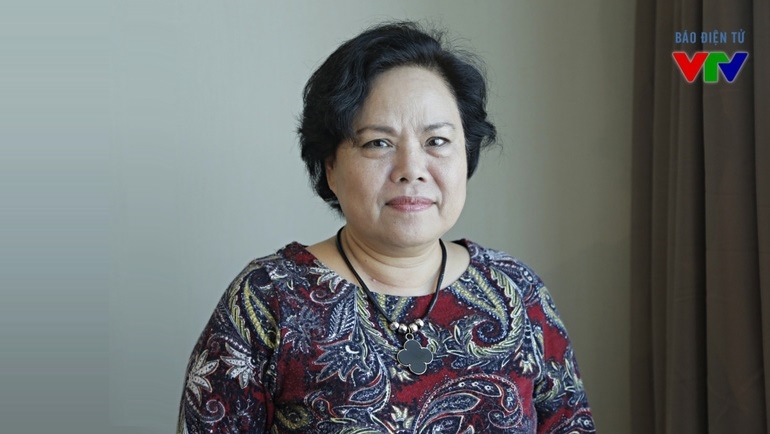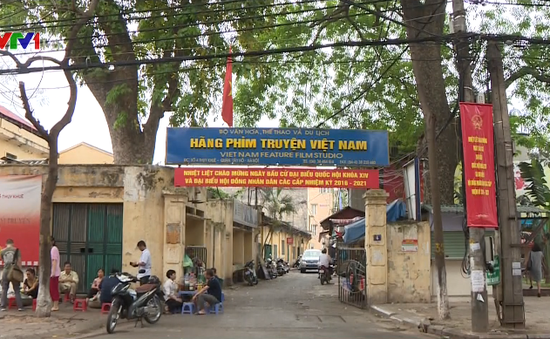Vietnam turns semiconductor vision into action
The global semiconductor industry is being reshaped by geopolitical tensions, shifting supply chains, and the surge of digital technologies.




Macro mechanisms and policies are the main factors causing the Viet Nam Feature Film Studio (VFS) to face a crisis that could lead to its dissolution.

After inspecting the VFS and listening to the parties, Deputy Prime Minister Vu Duc Dam has directed the overhaul of its entire privatization. The screenwriter Trinh Thanh Nha, an insider, shared with TheLEADER her preoccupation with this issue.
There is a fact that many people think the studio is trying to cling to the “subsidized udder”, which has disappointed many artists. And we wonder what is happening.
An unexpected equitization
We realized that partly because of our indifference and irresponsibility, the studio which is also our family can be destroyed. However, the main causes are the macro mechanisms and policies.
For twenty years, the studio has struggled to survive. We receive orders from the State to produce films. However, the lands managed by VFS, especially the land located at No. 4, Thuy Khue street has been suspended, making us unable to construct or associate with partners. This is the shackle for the artists of the studio and also the reason for the equitization.
However, the equitization has been implemented in an unexpected way in which the wrongs are hidden or blatant. As a result, artists have to face a new "boss" who is pragmatic and reckless.
Everyone has realized that the equitization process has been implemented wrongly, and the State will have to suffer from the first consequence. It would lose a source of revenue coming from equitization, a big cinema brand that has brought the country’s image to the world, a well-trained and enthusiastic film crew as well as the faith of the people.
One of the obstacles of the equitization of the VFS is the brand evaluation. It is impossible to calculate the studio's brand value which is made up of a glorious past in the way they calculate a tangible brand value.

The Viet Nam Feature Film Studio (VFS). (Photo: VTV)
Feeling sad to look into the international film industry
Since the 70s of the last century, the films produced by the VFS has been widely accepted by international audiences.
Many international film crews coming to Vietnam to seek for cooperation opportunities chose VFS as their first partner. However, the contracts for film manufacturing or service renting have been lessened due to the pragmatic managing way of appropriate agencies. As a result, the purpose of production is deviating gradually without preparation, while the decision to direct VFS towards the market is not available, putting the studio at the risk of being wiped out.
The equitization trend is irreversible but its purpose must be clearly identified. That is to revive the film industry in Vietnam and protect the mainstream of Vietnam's film industry. It must not be a tool for a group of interests to buy the golden lands at unexpected prices. In order to achieve that, the equitization must be transparent, especially in choosing the investors via their development plan for the project. The plan chosen must express the suitable view which prioritizes the reservation and development of mainstream movies funded by the State and the ability to mobilize the socializing capital.
A new owner of a cultural unit must have a thorough understanding of its main occupational activities and a strategic vision to develop the manufacture of cultural products to meet the domestic demand. He must also dare and be able to integrate its products into the mainstream culture of the world.
The global semiconductor industry is being reshaped by geopolitical tensions, shifting supply chains, and the surge of digital technologies.
The change in APA approval authority is expected to shorten processing time and enhance business proactiveness in international tax negotiations.
As hybrid cloud systems grow more complex, Vietnamese enterprises are struggling to detect cybersecurity threats moving laterally within their own networks.
The submission of the draft resolution on Vietnam’s international financial center to the National Assembly heralds a new developmental era for the country.
More than just running a 5-star resort, Kristian Petersen is redefining the art of hospitality with a humane and sustainable leadership philosophy.
For Tyna Huynh, co-founder of Drinkizz, organic is not just a food choice but a way of life that fosters a deep connection between people, nature and community.